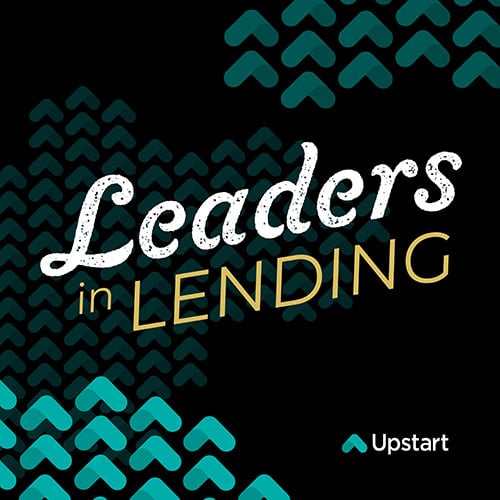Leaders in Lending | Ep. 44
Digital Transformation and the Community Reinvestment Act: Partnering with Fintechs to Serve LMI Communities
In this episode, Nathalia Artus, SVP, Director of Community Development and Reinvestment & CRA Officer at Atlantic Union Bank, discusses how she approaches the CRA and the vital role strategic partnerships will play in community development in the future.


GUEST SPEAKER
Nathalia Artus

ABOUT
Atlantic Union Bank
Key Topics Covered
- How the digital transformation affected the customers CRA serves
- Partnering with fintechs to extend credit to borrowers
- How each bank approaches CRA differently
- Ways to measure impact on the community and successfully track data

"CRA is an art, not a science—each bank does it differently.”

"CRA is working through a lot of reforms, and there is a change from the regulatory agency to make it more seamless and to bring it up to speed to today's needs.”

“The banking industry can be quite competitive, but where we can truly partner is in community development.”
EPISODE RECAP & SUMMARY
The Community Reinvestment Act (CRA) is a decades-old law requiring banks to meet the credit needs of their community.
With all the changes that have taken place in banking over the last 10 years, how can financial institutions partner with fintechs to best serve their communities?
In this episode, Nathalia Artus, SVP, Director of Community Development and Reinvestment & CRA Officer at Atlantic Union Bank, discusses how she approaches the CRA and the vital role strategic partnerships will play in community development in the future.
We discuss:
- How the digital transformation affected the customers CRA serves
- Partnering with fintechs to extend credit to borrowers
- How each bank approaches CRA differently
- Ways to measure impact on the community and successfully track data
Let’s dig deeper into harnessing the power of fintech for economic inclusivity.
Starting with financial literacy
There have been endless changes due to the pandemic, but one of the most striking is the irreversible digital transformation.
Atlantic Union Bank was already leading the pre-pandemic charge to offer valuable, real-world financial education across multiple platforms.
Then she saw a 92% increase in customer transaction volume.
While not all consumers have the same level of comfort with or access to technology, these new digital options are opening up promising opportunities for low to moderate-income communities that old-fashioned banking just doesn’t offer.
Credit equality
Nathalia points out that while 80% of Americans have never defaulted on a loan, less than half have access to the kind of credit that enables upward mobility.
She realized that lending via traditional credit score models was needlessly excluding a host of potential worthy borrowers.
Measuring impact
The CRA was enacted in 1977 by President Jimmy Carter, to combat discriminatory practices that were entrenched in the banking industry.
Over forty years later, financial institutions have to prove CRA compliance, but have regulatory bodies caught up to the latest levels of the digital transformation?
Access via mobile phones offers more inclusion for consumers as well as more chances to collect a wealth of useful data.
The 3 pillars
Nathalia states that Atlantic Union has “a narrow focus on how we can serve our communities” through the three pillars of community reinvestment:
- Affordable housing
- Financial literacy
- Economic development
Affordable housing for lower and middle-income citizens is drying up, especially in Nathalia’s own community of Richmond, Virginia. With an incoming Amazon headquarters, it’s a very pressing need.
Atlantic Union is also offering comprehensive, completely free online budgeting and money management tools that are utilized by over one-third of their customers.
Nathalia’s vital community partners are helping her track key demographics and the impact of these programs.
Finding effective metrics
One benefit of partnering with fintechs is tapping into their massive reserve of customer data.
Some institutions simply put out a press release patting themselves on the back without doing any meaningful work. Nathalia is finding new ways to pinpoint the initiatives that are really making a difference.
Supporting MDIs
Minority depository institutions are federally insured commercial banks or saving associations where 51% or more of the voting stock is held by minority individuals — or a majority of the BOD and the surrounding community is comprised of individuals of an ethnic or racial minority.
These organizations are attracting a lot of capital. Nathalia is passionate about partnering with leaders across the industry to create more guidance and support for MDIs.
It’s imperative that they deploy those assets where they’re most urgently needed.
Nathalia feels that AI will play an essential role in helping financial institutions identify more worthy customers beyond the walls of the outdated credit score model.
“Partnerships with fintechs are going to be the future of banking,” she points out. The agility and customer focus of fintech will enable banks like Atlantic Union to more equitably serve the whole community.
Stay tuned for new episodes every week on the Leaders in Lending Podcast.




